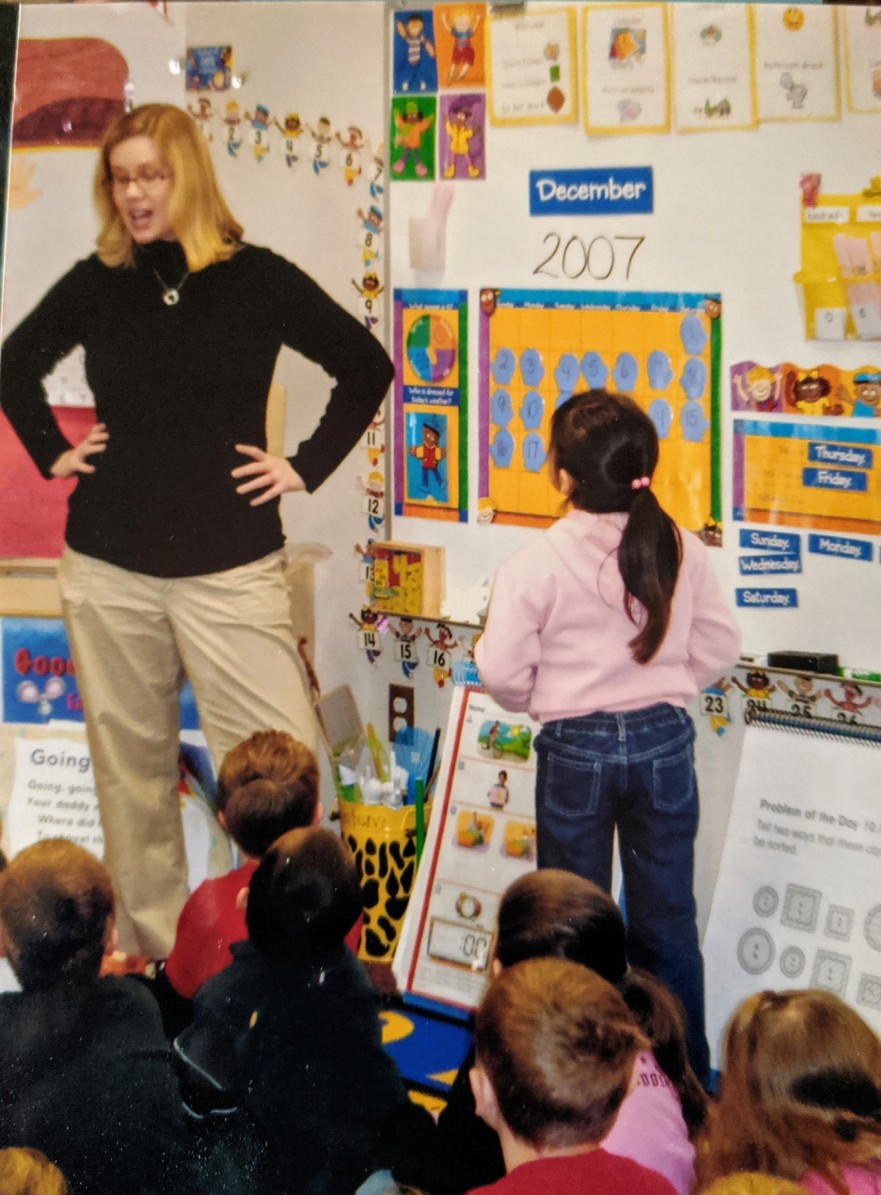It’s hard for me to believe, but after twenty years of teaching, this is my last week as a teacher. I wrote my letter of resignation a few months ago. It was a short, simple statement beginning with my intention to leave and thanking the school board, superintendent, administrators, colleagues, and especially, the students I’ve been fortunate to work with and learn from.
Here’s the longer version of why I’m leaving.
After years of successful and rewarding teaching, I have come to the conclusion that I can no longer, in good conscience, teach. I am the type of person who needs to feel effective to be fulfilled. I can no longer be an effective teacher under the conditions given, conditions rampant across the nation. I cannot fulfill my vision of good teaching and so I have become a “conscientious objector.” This is not a decision I’ve come to lightly, and from someone who has found personal identity in the title “teacher” for half my life. It is not because I am burnt out but because I am demoralized.
There is a difference between demoralization and burnout. Burnout indicates a lack of resilience. I am plenty resilient – I practice yoga, self-care and mindfulness daily, set boundaries between work and home life, and say no to projects that don’t fuel me. Demoralization is “rooted in discouragement and despair bourne out of ongoing value conflicts with pedagogical policies, reform mandates, and school policies” (Santoro, p 3). Demoralization is a contextual issue, not a psychological one.
I am not alone. Arizona has approximately 95,000 certified teachers, but only about 52,000 are teaching, according to the Arizona Department of Education (Educator Retention and Recruitment Report, 2015). My demoralization fits my context but the truth is universal.
Many teachers who experience demoralization recall it happening gradually over a period of time, not necessarily at a single incident. While my demoralization has crept in gradually over the past several years, it lept in front of me one day this past winter, too big, too loud, and too scary to ignore.
We were delivering yet another round of benchmark tests. It was December, a time in elementary schools when teachers know you need the best, most engaging material in your repertoire to keep your students from climbing the ceilings and walls with pre-holiday madness. Giving them a computerized, standardized test felt like I was torturing my ten and eleven-year-olds. I was feeling literally trapped in my tiny portable classroom, severely overheated and stuffed with 31 5th graders. In an effort to “prepare an environment that mimics the AZ Merit test,” our special area classes were cut for the two days it would take to take the tests.
I was hot, literally and figuratively. But forced to comply, I read the directions to my class aloud (don’t get out of your seat without permission, keep your eyes forward, etc.) and helped my students log-in and begin the online assessment.
After a while, one young man got out of his seat. I became so upset (RULE NUMBER ONE WAS DON’T GET OUT OF YOUR SEAT!) I hissed at him, “What are you doing? Why are you out of your seat?” He replied sheepishly, “Oh sorry, I just forgot.” He glanced back at me with scared eyes as he returned to his seat.
I returned to my desk and sat down heavily, thoughts swirling: What was I doing? What had I become? Had I just whisper-yelled at a student for getting out of his seat? It hit me that I didn’t like it and didn’t want to perpetuate this system anymore. “The dilemma in demoralization is not a question of what should be done; the problem is what should be done is not possible” (Santora, p. 55).
I went home and had a long tearful conversation with my family and decided to end my teaching career. When I reflected on the decision I had made, I felt a huge weight lift. I knew it was the right thing for me to do.
My motto of late has been “Into the Unknown.” But I was inspired by a different song by Elsa, “It’s time to see what I can do – to test the limits and break through.” I will always have a passion for students, teachers, and public schools, and leaving teaching will give me a new perspective and opportunities to advocate. I will take my passion and dedication and direct it in other ways. I will find a way to live a meaningful life in a different context – a context where I can be effective and do good work.
That’s what I wanted people to know. But I wish to express sincere gratitude for the people who I’ve shared so much joy with over the years of teaching, from my first colleagues and mentors at Willow Grove in Illinois, to my fellow Bobcats at Sunset Hills, the AEA/NEA crew, my Arizona and National State Network of Teachers of the Year family, the #amAZingNBCTs, the Arizona K12 Center and the National Board, as well as all of the other educators, administrators and advocates I have worked with along the way. But especially, to you, my hundreds (thousands?) of students. You are all the ones who made it so hard to leave.












Comments 5
Bravo, Beth! Your departure should be a wake up call to policymakers everywhere, as should every time we lose a teacher with such passion for the profession. Someday, hopefully, they’ll listen and we can preserve education for future generations.
This is heartbreaking.
The distinction between burnout and demoralization is on point.
I’d be lying if this post didn’t make me think twice about staying.
Wishing you peace and blessings as you move on to “The Next Right Thing” Beth. And for anyone reading this who might not know Beth personally, I want to state what a giant loss she is to the profession. She has been an inspiration to me for years! But here is the thing: Every teacher has a breaking point and ed policy in this state tests that breaking point year after year after year. We don’t have a shortage of teachers in Arizona. We have a shortage of Arizona citizens who are willing to teach. And for those who are teaching, we are all just a few experiences like this–feelings like this–away from making the same decision. This next year, I might keep count of how many times I have thoughts like “Is this worth it?” as I work late nights or defend my profession as valuable and worthy. I have read far too many blazing “Goodbye Letters” from excellent educators who make brave decisions to move on. Here’s my suggestion: Let’s make Beth the last one. If you are reading this and you can do anything about ed policy in Arizona…how about drawing a line in the sand right here. And if you are a voter reading this, do not mess up this next election. Everyone who values education and children MUST prioritize their education vote this year. Read up, show up, and know what your candidates stand for. Then, VOTE FOR EDUCATION! #NoMoreLost
Congratulations to you! Not just for 20 years of instruction, but for staying true to yourself and your values. I can identify with you on so many levels. If it was not for Montessori, I am 99.9999% certain I would have left teaching for the same reasons. Every year, our District and state requirement threatens our autonomy and the integrity of the program. The line for me staying keeps getting thinner.
Thank you for your service. In the short time I’ve known you, I have been inspired by your passion for kids. You are someone who sees the big picture and this letter truly shows this. The tests don’t matter, the kids do. Sitting in a seat facing forward doesn’t create successful humans and certainly doesn’t show it. Kudos for writing the real letter. All the best in your next adventure!